#rehabilitation
Text
free Palestine, but remember something
young chinese cambodian , says something important. If there is a true ceasefire, and the genocide against the gazan people ends, dont do that white people advocacy thing, and instantly stop paying attention to palestine. Rehabilitate please! After a genocide, the economy, education, the landscape is changed for so much worse. Notice how they bomb things like hospitals, schools, and universities? its to make recovering from this harder for gaza. Its happened before for people who've suffered from genocide, for once dont let it happen again. I hope that soon, gaza can escape literal hell, brought by israel
8K notes
·
View notes
Text
Nesta, Interrupted: gendered perceptions of alcoholism in ACOSF
CW: addiction, sexual assault, gendered violence.
Creds: I’m a licensed counselor with a degree specialization in treating addiction. I have career experience with multiple modes of mental health, trauma, and substance use treatment in women-specific carceral, institutional, and healthcare settings. And I know anyone can come on the internet and say that, but I pinky promise.
The short version:
ACOSF stigmatizes alcoholism in line with cultural standards.
Western culture feels differently about female and male alcoholics due to systemic sexism, and thus treats them differently.
Women’s experience of alcoholism is often compounded by or even a result of systemic factors and intersectional identity.
Nesta’s treatment in ACOSF, while repugnant, is in many ways very accurate of attitudes today.
(I’ll be using “women/men” and “male/female” to denote cis afab and amab people. Little research exists on the experiences of queer, nonbinary and gender expansive considerations in addiction and recovery, which is a fuckin’ shame. Studies are also largely conducted with white participants due to enormous barriers to treatment for Black, Indigenous, and people of color, so this convo is inherently incomplete where it neglects those intersections.)
Okay, first things first: ACOSF is a book that stigmatizes alcoholism. I will not be taking questions.
The number one thing to understand is that in America, land of Miss Sarah, we are very bad at addiction treatment (tx). Why? Because our culture hates addicts has as stigma around addiction. And female alcoholics bear a very specific set of stigmas based in their identity.
In Susanna Kaysen’s memoir Girl, Interrupted , Kaysen’s character is institutionalized following a non-fatal suicide attempt. When evaluated, she’s diagnosed with borderline personality disorder, that bastion of diagnoses perfect for people (75% of whom are female-identified) who don’t fit into our polite definition of functioning. As the book unfolds, she reflects on how (white) women are often pathologized when they buck against systems of oppression that create the dysfunction in them in the first place. That is not to say other women in the institution are not genuinely in need of help, nor that mental illness in women is always from a systemic wound. But it’s crucial in the treatment of female addiction and mental health disorders to considered the systemic factors of gendered violence and patriarchy, and the attitudes we hold about women who struggle with drinking.
Think about female alcoholics in media. If she’s young, she’s a loose, reckless sl*t looking for trouble and deserving of the reality check when she finds it (Amy Schumer in Trainwreck, Lindsay Lohan in general). Or if the woman are older, they are discarded, or gross, or pathetic, or evil like anyone Faye Dunaway played or Eminem’s mom in 8 Mile (deep cut lol). Men are afforded a much larger spectrum of experiences and struggles - Ernest Hemingway, Leaving Las Vegas, Sideways, the dude from A Star is Born, Frank from Shameless (brilliant), frat boys, blue collar workers, introspective tortured artists, fucking IRON MAN. I could go on forever, but I hope that illustrates the depth and diversity of male-centric stories of alcoholism not often afforded to women.
One of the most empathetic and accurate portrayals of female alcoholism, in my opinion, is in the show Sharp Objects (the book, too, but actually witnessing it makes a difference). We see Amy Adams’ Camille swig vodka from an Evian bottle while fending off vicious, veiled attacks from her verbally and emotionally abusive mother and experiencing flashbacks of teenage sexual assault. We watch her struggle to find emotional safety in her conservative hometown, both wanting to fit in and get out in order to survive. We GET why she drinks and I have trouble blaming her for it even as she wreaks havoc on herself and others. We can see her clawing just to make it out alive, and alcohol is the tool she’s using to do it, for better or worse.
Which is where Nesta enters the chat. When we get our first glimpse of her alcohol use is ACOFAS, it’s portrayed as something everyone knows about but that she’s still mostly keeping it together - her dress is clean, her hair is neatly braided, she doesn’t need a chaperone to show up to a family event. The deterioration between ACOFAS and ACOSF is alarming, and we know that alcoholism is a progressive condition so that tends to happen. Was there a particular trigger? That’s hard to say. Solstice certainly didn’t help, especially with the pressures to perform and conform to the standards of the Inner Circle aka the people in power. I imagine seeing her sisters bouncey and reveling in the world that stole them and killed their father was probably.. tough, to say the least. The barge party seems to be a turning point as well, though this one is more confusing to me. But given the child abuse, extreme poverty, sexual assault, kidnapping, bodily violation, witnessing her father’s murder, almost dying, WAR - and that’s not even to mention essentially becoming a refugee - it would be amazing if she DIDN’T drink. She 100% has complex trauma, and is looking for ways to cope.
No one with full capacity dreams of becoming an addict when they grow up. Addiction, in my professional and personal experience, is largely a strategy for coping with a deeper wound. People don’t drink to feel bad. They drink to feel good, and to survive. Nesta herself is drinking to survive, but it’s having the unfortunate side effect of killing her at the same time. As she slides into active addiction, the thought of her own death may even be comforting, and alcohol in that way is her friend. (There's some interesting research right now framing addiction as an attachment disorder, but I don't know enough to speak on it much.)
So she obviously needs help. That’s not a debate. What is a debate is how the IC should best go about intervening. A variation on the Johnson method is used in ACOSF (the one from the show Intervention) and appears to be successful only because they threaten her if she doesn’t comply. This method has mixed data to support it, and while it’s very good at getting people into tx, there is a higher relapse rate for those who receive it (1). The “family” gathers and tells her the ways she’s hurt them and tell her the consequences if she doesn’t seek the help they’re offering. And again, so many of their reason are the effects on THEM, how she’s making THEM look, not her pain.
The IC’s ignorance and dismissal of her alcoholism in ACOSF is frankly mystifying. Why do they intervene on all the drinking and sexing, anyway? It seems like they’ve been fine enough with it up to this point. But now it's gone too far, not because of her illness but because she is embarrassing them. And I don’t know about you, but between Cassian apparently fucking half of Velaris and Mor’s heavily documented emotional drinking, that’s hard to square. It makes it feel much more likely that they don’t like the way she is coping, that she is not fitting into their picture of who she’s supposed to be. This picture is inherently gendered, because Prythian society and those who live in it have explicit and implicit expectations of gender roles, whether they’ll admit it or not. Cassian and Mor are playing their roles well; Nesta is not.
That leads me to believe it is NOT all about her, but the systemic and internal factors influencing their perception of her and the ways she’s struggling. It’s distasteful to them for her, a female, to be deteriorating this publicly, despite the fact that her very identity makes it harder for her to function in the patriarchy of Prythian. We hear almost exclusively about sexual violence against women, aside from 2 male characters. Past or present assault of women is a major plot point on multiple occasions (Mor, Gwyn, Nesta, Emerie, Rhysands mom and sister, the lady of autumn, Cassians mom, Azriels mom, I could go on). But something about the way Nesta is contending with that is unacceptable, and I believe it’s because she’s not trying to cover up her dysfunction. In prythian, we keep these things hidden- Mor’s assault is never processed in full, Azriel’s mom seems to be alone at Rosehall, priestesses are literally hidden inside a mountain for centuries. Women process trauma alone and in the dark, but Nesta is in the light and she is loud. She is refusing to hide her problems, and the IC don’t like that, whether they realize it or not.
So why don’t the IC understand this? Like I said earlier, as a culture we hate addicts, or what they stand for, in very much the same way I think we hate people experiencing homelessness. We convince ourselves it was a series of bad choices that led someone where they are, choices we would never make because we are smart, smarter than them. We believe are more in control than that. We can prevent bad things from happening to us because we are good, because we are better than whoever it’s happening to. But the reality is almost ALL of us are one hospital stay away from homelessness, just as all of us are one trauma away from addiction. And with female addicts, we have another layer of expecting women to only struggle nicely and quietly, or to go away. Intersectional factors are at play here, too: white women are much more likely to have alcoholism attributed to mental health and trauma factors, where people of color often suffer the same addiction being more associated with crime. You can imagine how that plays out differently.
So what is the effect of all this? Gendered expectations lead to not only external stigma around addiction and tx, but also to internalized stigma which can limit willingness to seek tx. (2) Many social forces encourage women to drink and discourage them from telling anyone. Factors such as poverty, family planning, access to education, racial discrimination, and location can make services harder to access. Internally, women are more likely to enter treatment with less confidence in their ability to succeed, but report more strengths and more potential to grow recovery strengths during and following tx. For men, the pattern is reversed (3). And women have more successful tx episodes overall when gendered considerations are a part of the design and implementation of services (4). For Nesta, the effect is that she’s forced into treatment and copes by having hate sex with her ex and changing herself to conform to her family’s expectations while the House and the Valkyrie’s actually take care of her. I do not see how Sarah drew the line from there to recovery, I truly don’t. If anything, she recovers in spite of the ICs intervention, not because of it.
In summary, Nesta Archeron deserved better. Nesta deserved the same compassion the book gives to men who are struggling, and it’s a reflection of not just the book’s culture but the author’s culture that she doesn’t get it. Female alcoholics are worthy of treatment that integrates their identities, as those identities are often essential factors contributing to their addiction. What's shown in ACOSF is a reality many women live, and they shouldn't have to.
Barry Loneck, James A. Garrett & Steven M Banks (1996) The Johnson Intervention and Relapse During Outpatient Treatment, The American Journal of Drug and Alcohol Abuse, 22:3, 363-375, DOI: 10.3109/00952999609001665
Groshkova T, Best D, White W. The Assessment of Recovery Capital: Properties and psychometrics of a measure of addiction recovery strengths. Drug Alcohol Rev. 2013;32(2):187��94.
Best D, Vanderplasschen W, Nisic M. Measuring capital in active addiction and recovery: the development of the strengths and barriers recovery scale (SABRS). Subst Abuse Treat, Prev Policy. 2020;15(1):1–8.
Polak, K., Haug, N.A., Drachenberg, H.E. et al. Gender Considerations in Addiction: Implications for Treatment. Curr Treat Options Psych 2, 326–338 (2015). https://doi.org/10.1007/s40501-015-0054-5
#nesta archeron#pro nesta#alcoholism#mental health#sexism#acotar#acosf#stigma#rehabilitation#prythian university#sjm critical
121 notes
·
View notes
Text
My secret hot take that I harshly judge anyone who disagrees with is that I think literally anyone can be reformed and that punitive justice, while satisfying, is not effective or humane.
I want a massive prison reform not just because of the racism but because of the horrible cruelty of expecting people to stop doing something when you hit them hard enough. Even when it works (which it usually doesn't for various reasons), you cause more harm than good.
675 notes
·
View notes
Text
youtube
How the UN is Holding Back the Sahara Desert
Permaculture instructor Andrew Millison journeys with the UN World Food Programme to the Northern border of Senegal to see an innovative land recovery project within the Great Green Wall of Africa that is harvesting rainwater, increasing food security, and rehabilitating the ecosystem.
#solarpunk#senegal#niger#permaculture#great green wall#africa#landscape#rehabilitation#Great Green Wall of Africa#rainwater harvesting#Youtube
127 notes
·
View notes
Text
shoutout to recovering abusers, especially those who are abuse/trauma survivors themselves. you and i both know that, unfortunately, once we do something, we can't take it back. i know it hurts to know that, but recognizing it for what it is... that's what allows you to do the only thing left to do - be better. it's not easy, nor pleasant, and likely, a very isolating experience.
so i want you to know, there's at least one person out there who's rooting for you, who's proud of the person you're becoming. you are not doomed to do horrible things forever. you are not beyond leading a happier, healthier life. growth is an option. healthy relationships are an option. they have to be, for all our sakes.
if you want to stop hurting others, and stop hurting yourself, your choice is right here. i believe in you. you can do it. you have to. break the chain.
#softspoonie#abusers#abuse#recovering abuser#recovering abusers#abuse survivor#trauma#trauma survivor#mental health#mental health support#abusive relationships#abusive relationship#abusive#rehabilitative justice#rehabilitation#recovery#growth#healing#personal growth#positivity#mental health positivity
152 notes
·
View notes
Text
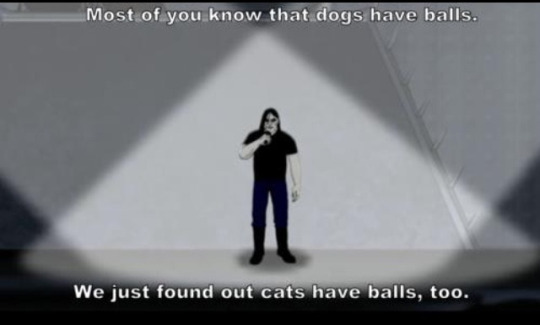
Every time one of the band members says they "just found out" something, guaranteed there was a(n unscheduled) meeting in Charles' office about it. The entire premise of "Rehabklok" even implies that the boys collectively become 'experts' on AA in order to ship Pickles off to rehab.
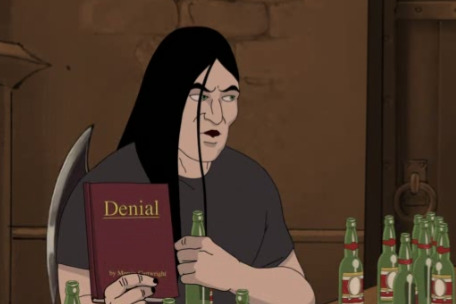
#rehabilitation#alcoholics anonymous#dethklok#metalocalypse#pickles the drummer#booze#alcohol#beer#nathan explosion#skwisgaar skwigelf#william murderface#charles foster offdensen#cfo#adult swim#toki wartooth#brendan small#season 3
85 notes
·
View notes
Text

Musée La Piscine, Roubaix/Lille
#Musée La Piscine#piscineroubaix#musee#art#sculpture#rehabilitation#visualzen#lille#hautsdefrance#photography#kiel#original photographers#photographers on tumblr
47 notes
·
View notes
Text
In life, I believe we are all just addicts struggling with our drug of choice.
For some, it may be actual drugs. Meth, cocaine, heroine, marijuana... whatever suits them. For others it is alcohol or cigarettes or other tobacco products.
It may be pornography. Or self harm.
I have wrestled with my drug of choice for about four years. Indulging daily or weekly. I'm accustomed to counting wins by the day.
...
Tomorrow, I'm going out with some friends to celebrate two months clean. Eventually I may relapse back into my old habits, but that's not the point. The point is proving to myself that I am able. Recovery is possible.
I WILL NOT BE A SLAVE TO MY DRUG.
And I'll encourage you to adopt the same mantra. These addictions and this society that fuels them? It can't hold us. We are free.
#alternative#tw drugs#rehab#rehabilitation#addiction#self harm#sh#suicidal#depression#anxiety#mentally ill#mental health awareness#actually mentally ill#ak thoughts#ak rants#mental illness#recovery#we will recover#encouragment#encouraging words#life update#clean#self control#addict#recover#deep shiz#deep thoughts#deep#anti capitalist#anarchist
70 notes
·
View notes
Text
‘Books keep our minds free’: US prisons ban reading materials at alarming pace
New PEN America data reveals incarcerated persons are being robbed of magazines and even recipe books
by Olivia Empson

Reading bans are rising at an alarming rate in prisons across the country, with new PEN America data revealing that those incarcerated are being robbed of the occasional magazine and even recipe books on how to make ramen.
For almost 22 years, Zeke Caligiuri subscribed to the New Yorker magazine from prison in Minnesota. He was meant to receive 52 annual issues but claimed during his sentencing to have never gotten the full amount. Instead, a non-delivery notice with vague wording would arrive at the prison post room, sometimes flagging an advertisement that was deemed inappropriate or just one article in an issue of many. After searching for information about what he couldn’t read, Caligiuri would sink into a period of overwhelming defeat.
“I realized that my world needed to get bigger,” he said. “But the things I needed to see and know were being held back.”
During this time, the words of New Yorker writers like Adam Gopnik, Ariel Levy and Emily Nussbaum were means of escaping the monotony of incarceration. Prison was programmed by a rigorous schedule, with days hardly extending beyond what was for lunch or when inmates could watch television. Searching for meaning, Caligiuri sometimes slept on the bunks with a book next to his head. When he could get it, poetry was the first thing he read when he woke up.
“If you take the books and culture out of these places, you have a zoo,” he said. “Language is the building block of creation. For me, in prison, it was the biggest thing. Words were the only thing connecting me with the world, with my family, and with my community.”
READ MORE
58 notes
·
View notes
Text
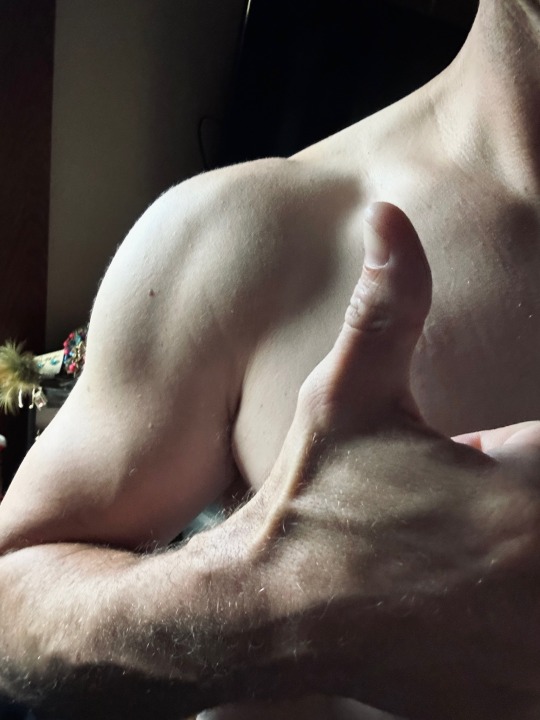
Great news today!! No more physical therapy appointments for this guy! Dr has cleared me to finish out my rehab from home. Shoulder is feeling really good and I’ve gained full mobility and range of motion lifting from my side outward and about 95% raising my arm forward. Still a little more to gain reaching behind my back but overall greatly improved.
My therapist was also impressed how much strength I’ve already gained back in all push and pull motions that incorporate my shoulder. I was warned not to push it and take it easy on overhead pressing or pulling motions. But overall cleared to start easing into some heavier weight training again so long as there is no pain or discomfort. Man it feels like it’s taken forever to get to this point but it feels so good to finally feel like I can start to function normally again. Cheer’s to getting over the hump!
#recovery#rehabilitation#shoulder injury#road to recovery#mental toughness#progress#me#m0tiv8me#fitblr#fitness#fitspo#humpday#weightlifting#exercise#physical therapy
74 notes
·
View notes
Text
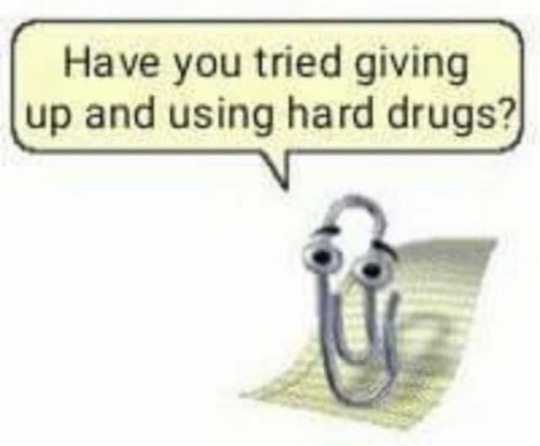
#drug aesthetic#aesthetic#mentally tired#mentally fucked#depressing quotes#mentally exhausted#drugs aesthetic#iv drugs#edgy theme#mentally unwell#oxycontin 80mg#addiction#i need heeeeelp#drug rehab#rehabilitation#drug blog#please help#giving up#i am suffering#i am unstable#i am unwell
29 notes
·
View notes
Text







O'Balia thermal Spa, Balaruc-les-Bains, France,
(Demolition, rehabilitation, and extension)
Architecture firm: Amelia Tavella
#art#design#architecture#travels#interior design#luxury lifestyle#interiors#spa#welness#o'balia#thermal#france#spa concept#render#balaruc-les-bains#renovation#rehabilitation#amelia tavella
21 notes
·
View notes
Text
Whump Prompt #1301
Submitted by Anon - thanks!
So I’ve just been thinking of whumpees who can’t do anything for themselves anymore. They have to be told. And once they’re rescued, one of their former friends/coworkers/team members/etc sticks with them. The others think their hopeless, but one person is always there, trying to help and rehabilitate them.
49 notes
·
View notes
Text




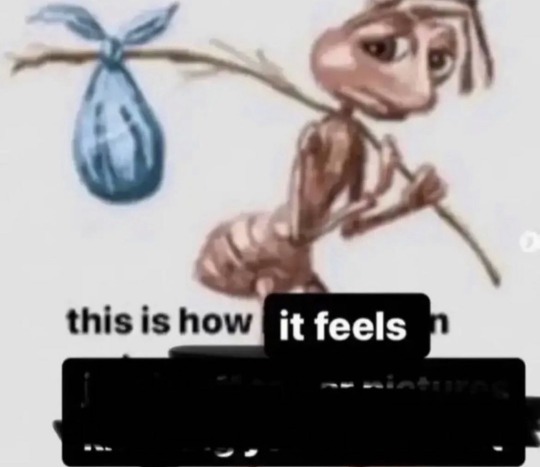

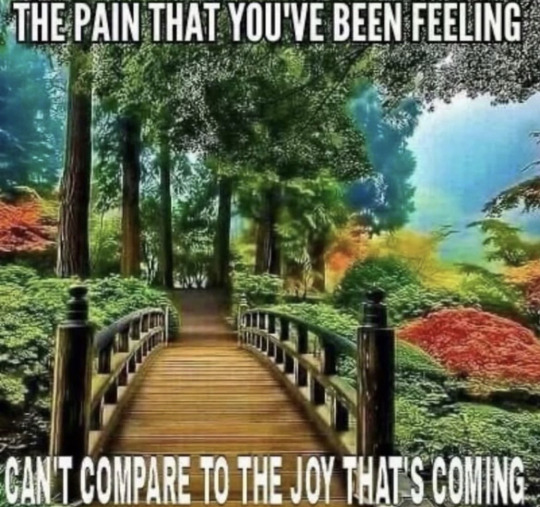

Mental rehab and working on my mental health mood board parte uno
#cherry says#im gonna tag the most weirdest tags so help me mf#mental health#moodboard#aesthetic#rehabilitation#mental rehabilitation#mental health core bitch#i think i should now work on something besides my ocd#me and Tiffany gonna have to fry some goddamn fish together now
19 notes
·
View notes
Photo

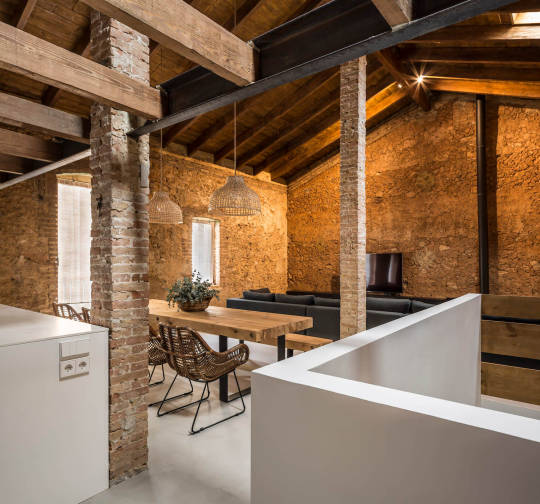








Vivienda Bonaire, Paterna, Valencia, Spain,
La Caseta Arquitectura,
Photography: German Cabo
#art#design#Architecture#interiors#rehabilitation#renovation#spain#valencia#paterna#vivienda#case#bonaire#la caseta arquitecture#minimal#townhouse
211 notes
·
View notes
Note
Hi I love the rehabilitation snippet you did any chance I can get a part 2 to it? No pressure
Part one
Nightmares weren’t uncommon among heroes, and Hero wasn’t quite lucky enough to be one of the few that didn’t wake up in the dead of night with shaking hands and a sore throat.
She woke up in a cold sweat, clenching her covers tight in her hands, her throat rattling with wheezy breaths at the memory of her nightmare. Hero had been good for a almost a whole month, but it must’ve been something about a villain in her house—a villain with an unknown power, only a thin wall away that sent the floodgates bursting open once more.
Breathing heavily, she cursed Superhero for this, for dropping off Villain on her doorstep and making that her problem, and also cursed herself for not being stronger—for being weak when God knows she couldn’t afford it.
Hero sat up and tiredly rubbed her eyes.
It was early in the morning, but not early enough that it would even be worthwhile to go back to sleep when she’d wake up soon anyhow.
She decided to get out of bed and suck it up, maybe brewing a coffee to deal with the rest of the morning, but then…she heard it: a crash coming from Villain’s room.
“Goddamn it.” She groaned, swinging her legs out of bed, kicking the tangled blankets to the floor, and rushing to reach the bedroom and find out what was going on.
She all but slammed the door open, worrying that she’d have to deal with an escape attempt or something from the silent villain, but when the door burst open and she looked inside…she saw the broken shards and dented lampshade, and she also took in the sight Villain crouched down on her knees, picking up the shards of the broken lamp looking up at Hero with wide eyes. Her panic fizzled, and instead was replaced with something that set in her harder once the adrenaline was gone.
Exhaustion. Exasperation.
Something that was a blend of both.
Hero pinched the bridge of her nose, but eventually sighed and bent down to Villain’s level. “Don’t touch that, you could get cut.” She warned, watching the other woman carefully set the handful of glass back of the floor. “Nightmare?”
Sheepishly, Villain nodded, her eyes downcast.
“Me too.” Hero admitted. “Don’t worry about the lamp…I didn’t like it that much, that’s why I shoved it in the guest room.”
She didn’t know what to do now. The next step was to clean up the glass, she knew that part already, but she didn’t know what to do with Villain. Usually, people offered to talk about, but Villain might as well have been mute if she wasn’t already, and Hero wasn’t much of a feelings person—never had been.
So then it left her wondering what to do once the glass was cleaned up.
Silently, Villain reached out to tap Hero’s hand, getting her attention, and then lowered her head in what looked to be an apology.
“It’s okay, it was an accident. I broke my alarm clock once in a similar situation.”
That was how Superhero had discovered Hero’s…nightmare issue. Hero had knocked the alarm clock into the wall and it had broken apart, which meant she was hours late to work that day. Since then, Superhero hadn’t touched on the subject much, but whenever he did it felt as if he were prying a knife into old wounds and watching the skin rip open with a microscope.
Thinking about her superior made her realize she probably ought to report this; Villain hadn’t necessarily done anything wrong—Hero couldn’t care less about the lamp being broken, as it was considerably better than what she had been expecting—but the nightmare would be cause for concern…though it was odd.
Villain didn’t have a history of nightmares.
Nowhere in the file did it mention her having nightmares, or at least not ones bad enough that she woke up from them any differently than she would a normal dream.
“I’ll go get the dustpan and broom…”
———
———
After the glass was cleaned up, Hero offered to make Villain coffee. As usual, the criminal hadn’t said anything and instead had opted to silently follow her like a sheep to the downstairs.
Hero listened to the machine hum noisily, and she looked back at the Villain sitting at her table.
“You can read a book or watch TV…or something. You don’t have to sit there and wait.”
The other looked back up at her, but stayed rooted at the table.
Hero just sighed and turned back around too grab the mugs. “Do you want anything in your coffee? Milk? Creamer? I have hazelnut creamer, if you’d like that—I’m pretty sure you don’t have any nut allergies, right?” The information Hero had absorbed was starting to blur together; it was too early to be thinking about anything other than breakfast.
Villain timidly nodded in response, and then nodded again when Hero asked if she’d like some of the creamer.
Tiredly, Hero sat down on the opposite chair and began sipping her drink while it was warm, trying to think about the next course of action. She was in charge of someone’s rehabilitation—she was in charge of training that person—but, frankly, she didn’t know where to start. Villain had been dropped on her doorstep without a clue what was happening, and Hero felt that she was in the same boat.
She’d been plopped in the middle of a mission and didn’t know where to go from there.
Maybe they wouldn’t start training yet…
Hero didn’t feel up to it after her less than stellar start to the morning, and she doubted Villain would be thrilled about it either.
“I’ll make breakfast in a little bit, then we can figure out where to start.” Was what Hero settled on as she drank the rest of her cup.
#hero x villain#rehabilitation#redemption arc#sapphic#villain x hero#my writing#continuation#villain whumpee#i guess ?#thank you for the ask!
114 notes
·
View notes